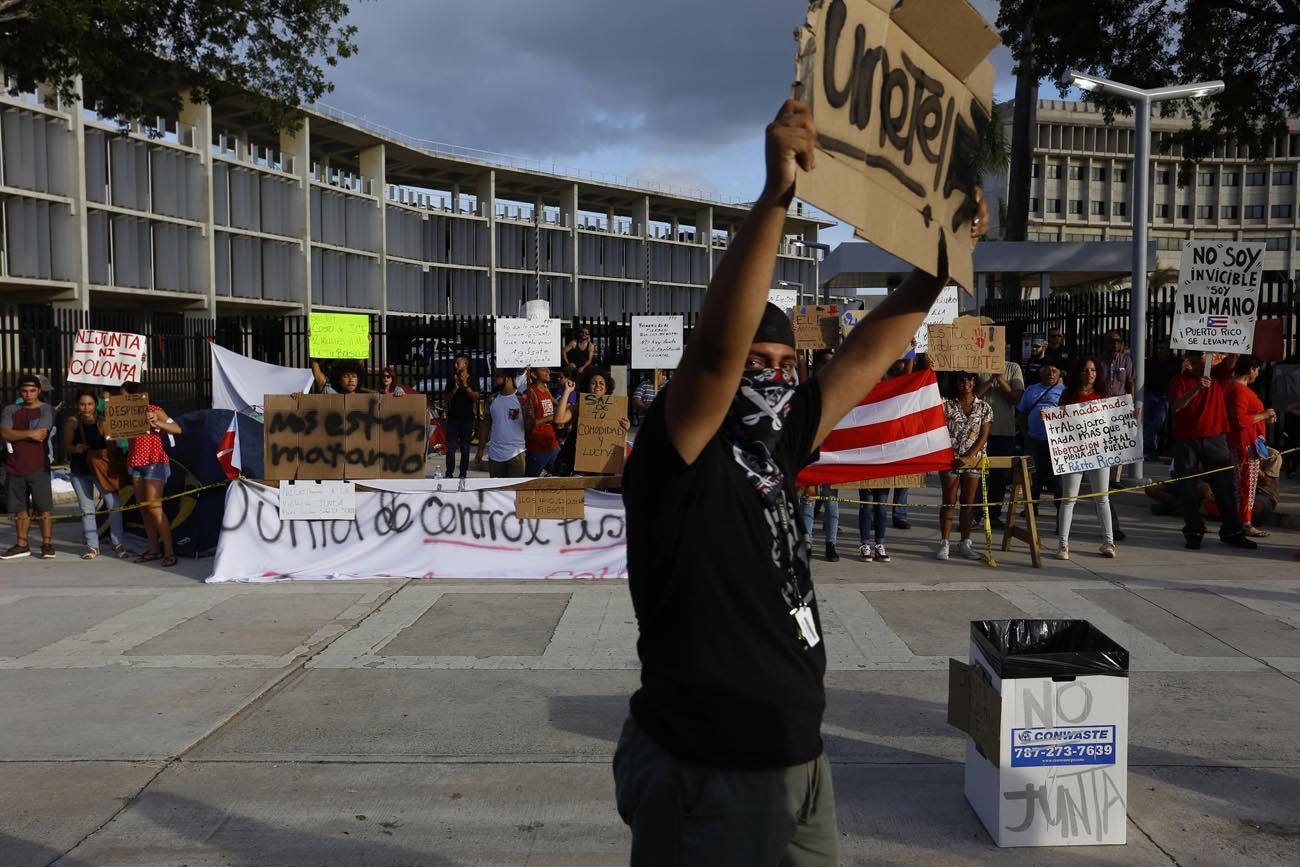WASHINGTON (CNS) — Puerto Rico got the legislation it had sought for months when the U.S. Senate adopted a bill that would allow the island’s political and financial leaders to restructure billions of dollars in debt and avoid defaulting on loan payments.
Voting June 29, the Senate passed the Puerto Rico Oversight, Management and Economic Stability Act, PROMESA, 68-30.
The House passed PROMESA June 9, 297-127. President Barack Obama has signed the bill into law.
[hotblock]
The legislation helps the U.S. territory to avoid defaulting on $2 billion in debt payments due July 1 and allow it to regain access to credit markets. The measure calls for establishing a federal oversight board to manage restructuring of the island’s $72 billion debt.
Archbishop Robert Gonzalez Nieves of San Juan, Puerto Rico, welcomed the bill’s passage, saying it will allow the island nation to restructure its debt in an orderly fashion and pre-empts lawsuits from creditors seeking repayment of outstanding loans.
“With a default, much of Puerto Rico’s infrastructure would have begun to collapse. The government, for example, would have run out of money to pay for police, firefighters, public schools, municipal hospitals,” Archbishop Gonzalez told Catholic News Service in an email.
He said that the establishment of an oversight board does not automatically assure that the debt restructuring process “will be fair.” He pledged that the Catholic Church would “continue to be a voice on behalf of the most vulnerable and poor who are the most impacted by austerity measures.”
The archbishop called for the church also to be a voice encouraging good government, “free of corruption, serving the common good” while promoting economic development and justice for all Puerto Ricans.
Advocacy groups, led by Jubilee USA, for months urged Congress to adopt restructuring legislation.
“This legislation is absolutely essential because we can see no economic growth or reduction in child poverty until the debt is restructured,” explained Eric LeCompte, executive director of Jubilee USA.
He credited the faith community for getting behind the bill to ensure its passage.
“This legislation would not have passed if not for the leadership of the Catholic Church and the leadership of other Christian communities,” he said. “In an election year, it was the religious community that got the issue heard in Congress. We would have not gotten the protection that put Puerto Rican people first and the debt second.”
Puerto Rican government, nongovernmental and religious leaders began to press Congress to secure a restructuring plan after Gov. Alejandro Garcia Padilla said in mid-2015 that the island’s debt had become unpayable.
Archbishop Gonzalez was among the most vocal proponents of debt restructuring legislation.
In an op-ed in The Hill newspaper June 7, Archbishop Gonzalez wrote that the measure would give “Puerto Rico breathing space so the payment of pensions and social services are made first, before debt payments. The legislation stops exploitative behavior of so-called vulture funds and has a process to bring our debt back to sustainable levels.”
[hotblock2]
He met with members of Congress and White House staff in September seeking support for a deal that would have saved the island from implementing deeper austerity measures than had already been enacted in essential safety and public health programs for Puerto Rico’s 3.5 million residents.
The crisis began as Puerto Rico endured financial hardships that worsened during the economic recession that began in 2008. In the meantime, the island’s debt was purchased from investors by hedge funds for pennies on the dollar which then demanded payment in full on the public bonds they hold. Archbishop Gonzalez called such actions immoral and a prime example of the “profit-at-any-cost” form of capitalism decried by Pope Francis.
As a U.S. territory, Puerto Rico is in a unique situation. It is not governed by the same U.S. bankruptcy laws that pertain to state and local governments and because it is not an independent nation, in cannot approach the International Monetary Fund for assistance.
Meanwhile, the U.S. Bureau of Labor Statistics listed unemployment at 11.7 percent in May, down from the peak of 17 percent in May 2010. The island is facing a drain of young adults as thousands make their way for employment to the U.S. mainland.
PREVIOUS: Author says ‘punitive treatment’ of believers on the rise in society
NEXT: Supreme Court’s abortion-clinic decision impacts states’ pro-life laws




Hopefully Puerto Rico can get out of debt then be granted statehood by the United State Congress.